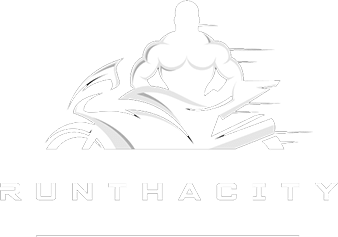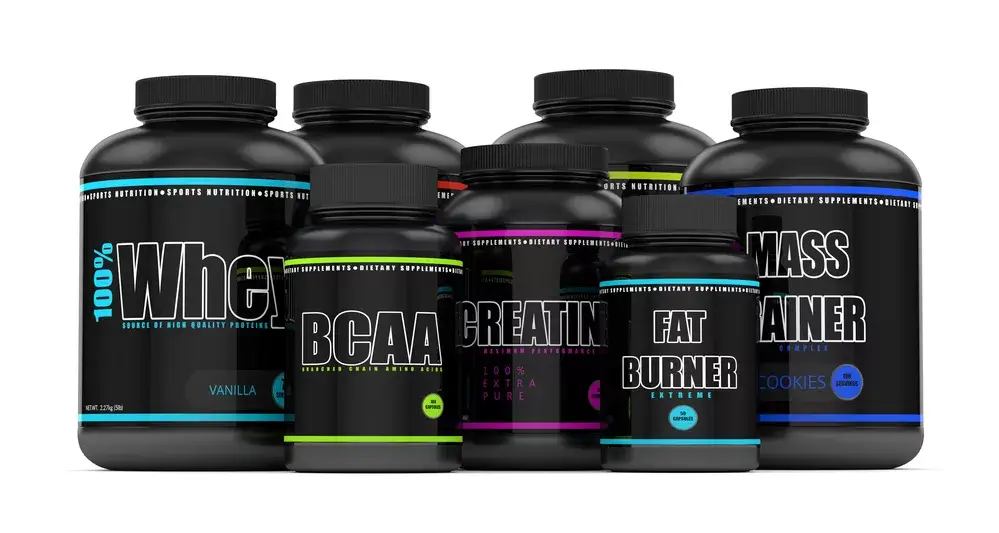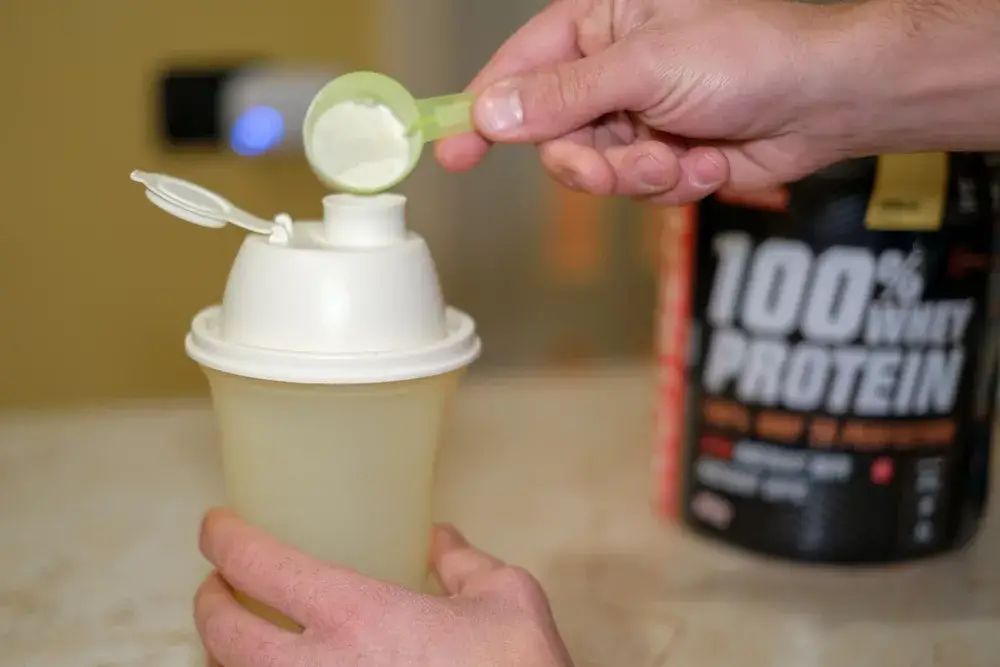The Time Under Tension Principle
I can attest to the importance of the time under tension principle in maximizing muscle growth. The tension principle states that muscle growth is a result of the tension placed on the muscle fibers during exercise. The longer you’re under this tension, (by doing more reps or more sets) the more small micro-tears in the muscle fibers, and when the body repairs these tears, it results in an increase in muscle size and strength.
In order to effectively create this tension, it’s important to incorporate heavy weightlifting into your routine. This means using weights that challenge you, while still maintaining proper form. By gradually increasing the weight you’re lifting over time, you can continue to challenge your muscles and create the necessary tension for growth.
It’s also important to remember that rest and recovery play a crucial role in maximizing muscle growth. Allowing your muscles time to repair and grow after each workout is essential for maintaining progress. This means incorporating rest days into your routine and getting adequate sleep each night.
Combining Weight Lifting and Progressive Overload
Combining weight lifting and progressive overload is a key factor in maximizing muscle growth for bodybuilders. Progressive overload involves gradually increasing the weight you’re lifting over time to challenge your muscles and create the necessary tension for growth. This is a crucial aspect of bodybuilding, as it helps to continuously challenge your muscles and push them to their limits.
Weight lifting, on the other hand, is the actual act of lifting weights. This can involve a variety of exercises, such as squats, deadlifts, and bench presses, to target different muscle groups. It’s important to incorporate a variety of exercises into your routine to target all muscle groups and achieve balanced growth.
When combining weight lifting and progressive overload, it’s important to find a balance that works for you. This means gradually increasing the weight you’re lifting over time, but not pushing yourself too hard too soon. It’s also important to listen to your body and take rest days when needed to prevent injury and allow for proper recovery.
The Importance of Nutrition
Nutrition is an essential aspect of bodybuilding and a key factor in maximizing muscle growth. In order to effectively build muscle, the body requires an adequate amount of fuel in the form of macronutrients, such as protein, carbohydrates, and healthy fats.
Protein is particularly important for muscle growth, as it provides the building blocks for muscle repair and growth. It’s recommended that bodybuilders consume between 1.6-2.2 grams of protein per kilogram of body weight per day. Good sources of protein include lean meats, such as chicken and fish, as well as plant-based options like beans and tofu.
Carbohydrates are also important for providing energy during workouts, as well as aiding in recovery and muscle growth. Bodybuilders should aim to consume between 3-5 grams of carbohydrates per kilogram of body weight per day, with a focus on complex carbohydrates like whole grains, fruits, and vegetables.
In addition to protein and carbohydrates, healthy fats are also an important aspect of a bodybuilder’s diet. Healthy fats, such as those found in nuts, seeds, and olive oil, help to provide sustained energy and support overall health.
It’s also important to stay hydrated and consume enough vitamins and minerals, such as calcium and vitamin D, which are essential for muscle health.
Rest and Recovery
Rest and recovery are critical components of bodybuilding and maximizing muscle growth. The tension principle states that muscle growth is a result of the tension placed on the muscle fibers during exercise, which triggers the body’s natural repair process. Rest and recovery are crucial for allowing the body to effectively repair and grow muscle tissue.
Adequate sleep is a key aspect of rest and recovery, as it allows the body to recharge and repair muscle tissue. Bodybuilders should aim for 7-9 hours of sleep per night to support muscle growth and overall health.
In addition to sleep, taking rest days and incorporating active recovery techniques, such as foam rolling and stretching, can also help to support muscle growth and prevent injury. During rest days, it’s important to give your muscles time to recover and repair, and avoid intense exercise.
It’s also important to listen to your body and be mindful of overtraining. Overtraining can occur when you push yourself too hard and don’t allow your body adequate time to rest and recover, leading to decreased performance and injury risk.
Supplements: A Supplement, Not a Replacement
Supplements can be a helpful addition to a bodybuilder’s diet, but it’s important to remember that they should never replace a balanced diet and consistent training regimen. Supplements are meant to complement, not replace, a healthy diet and exercise routine.
Common bodybuilding supplements include protein powders, creatine, beta-alanine, and branched-chain amino acids (BCAAs). Protein powders and BCAAs can help to increase protein intake and support muscle growth, while creatine and beta-alanine can enhance strength and power during workouts.
However, it’s important to remember that not all supplements are created equal, and some may not be effective or even safe. It’s recommended to speak with a doctor or registered dietitian before starting any supplement regimen, and to only purchase supplements from reputable sources.
Patience, Persistence, and Consistency are Key
Patience, persistence, and consistency are key elements for success in bodybuilding. Building muscle and maximizing muscle growth takes time and effort, and it’s important to have a long-term perspective and not expect immediate results.
Bodybuilding requires consistent training and diet habits, and progress will often be gradual and incremental. It’s important to stay committed to your goals and to consistently challenge yourself in the gym, gradually increasing weight and intensity as your strength improves.
In addition to consistent training, it’s also important to be patient and persistent with your diet. A balanced diet that is high in protein and nutrient-dense foods is crucial for supporting muscle growth, and it may take time to see the results of your diet and training habits reflected in your physique.
You Might also like
-
The Benefits of Yoga for Sportbike Riders
Sportbike riding, with its high speeds and sharp turns, demands a lot from riders. It requires not just physical strength and endurance but also mental focus and flexibility. This is where yoga, an ancient practice known for its physical, mental, and spiritual benefits, can play a pivotal role. Integrating yoga into your routine can offer sportbike riders numerous advantages, enhancing their riding experience and overall well-being.
Key Takeaways
- Enhanced Flexibility and Balance: Vital for maneuvering and maintaining posture while riding.
- Increased Core Strength: Supports proper riding posture and reduces fatigue.
- Improved Mental Focus: Essential for concentration and quick decision-making on the road.
- Stress Relief: Yoga’s meditative aspects can help riders unwind and relax.
- Injury Prevention: Regular practice strengthens the body and aids in recovery.
No products found.
Comparison Table: Yoga vs. Traditional Strength Training for Sportbike Riders
Aspect Yoga Traditional Strength Training Flexibility Significantly increases Limited increase Core Strength Builds through balance and posture Focuses on targeted muscle groups Mental Focus Enhances concentration and awareness Less emphasis on mental aspects Stress Relief High due to meditative practices Moderate, through physical exertion Injury Prevention High, with low-impact exercises Moderate, risk of overexertion Enhanced Flexibility and Balance
Yoga is renowned for improving flexibility. For sportbike riders, being flexible is crucial as it aids in maneuvering the bike more effectively and prevents muscle strains and injuries. Yoga poses or asanas stretch and elongate the muscles, increasing range of motion and making it easier to adopt the proper riding posture. Furthermore, balance is essential for sportbike riders, especially at high speeds and when taking tight turns. Yoga improves balance, which can help riders maintain control of their bike in challenging conditions.
Increased Core Strength
A strong core is vital for sportbike riders. It supports proper posture, helps manage the bike’s weight during turns, and reduces fatigue during long rides. Yoga poses are effective in strengthening the core muscles, including the abdominals, back, and pelvic muscles. A stronger core leads to better riding form, enhanced stability, and reduced risk of lower back pain, a common issue among riders.
No products found.
Improved Mental Focus and Concentration
Riding a sportbike requires undivided attention and quick decision-making. Yoga can enhance mental focus and concentration through meditation and breathing exercises (pranayama). These practices help calm the mind, reduce stress, and increase awareness, allowing riders to stay focused and react promptly to unexpected situations on the road.
Stress Relief and Relaxation
The thrill of riding a sportbike can be exhilarating, but it can also be stressful, especially after navigating through traffic or challenging routes. Yoga offers an effective way to relax and de-stress. The combination of physical poses, controlled breathing, and meditation promotes relaxation, reduces cortisol levels (the stress hormone), and improves overall mood.
Better Breathing Techniques
Proper breathing is essential for maintaining endurance and focus. Yoga teaches various breathing techniques that can help sportbike riders control their breath, even under physical exertion. Learning to breathe deeply and evenly can improve oxygenation, enhance energy levels, and ensure that muscles receive the nutrients they need to perform optimally.
Injury Prevention and Recovery
Regular yoga practice can help prevent injuries by improving flexibility, strength, and balance. Additionally, yoga can aid in the recovery process after rides or in the event of an injury. Gentle yoga poses can help alleviate muscle soreness, accelerate recovery, and prevent stiffness, making it easier for riders to get back on their bike.
No products found.
FAQs About Yoga for Sportbike Riders
-
How does yoga improve riding performance?
- Yoga enhances balance, flexibility, and mental focus, directly contributing to better riding techniques and endurance.
-
Can yoga reduce the risk of injuries from riding?
- Yes, by strengthening muscles, increasing flexibility, and improving balance, yoga helps prevent common riding-related injuries.
-
How often should riders practice yoga for the best results?
- Incorporating yoga 2-3 times a week can significantly benefit sportbike riders.
-
Are there specific yoga poses that are most beneficial for riders?
- Poses focusing on the core, legs, and back, such as the Plank, Warrior II, and Downward-Facing Dog, are particularly beneficial.
-
Can yoga help with post-ride recovery?
- Yes, gentle yoga can aid in muscle recovery, reducing stiffness and soreness after long rides.
-
Is yoga suitable for beginners or those new to fitness?
- Absolutely, yoga offers various levels of difficulty, making it accessible to beginners and seasoned athletes alike.
No products found.
Conclusion
For sportbike riders, incorporating yoga into their fitness regimen can lead to significant improvements in flexibility, strength, mental focus, and overall riding performance. Whether it’s through attending a yoga class, following online tutorials, or practicing at home, the benefits of yoga can help riders enjoy a more comfortable, focused, and enjoyable riding experience.
Sportbike riding is not just about the machine and the road; it’s also about the rider’s body and mind. Yoga offers a holistic approach to enhance both, ensuring that riders can tackle every curve with grace, precision, and ease.
For more insights into fitness and wellness for riders, visit RunTheCity’s Fitness Blog.
No products found.
-
What are The Benefits Of Deadlifts?
Did you know that deadlifts were once called “Romanian Deadlifts” and were used to test a person’s strength and character? Today, they remain a top choice for athletes, bodybuilders, and even celebrities like Dwayne “The Rock” Johnson, who credit them for building power and muscle.
This article delves beyond the hype to explore the what are the benefits of doing deadlifts, revealing the multifaceted benefits this exercise offers for both men and women, making it a valuable addition to any fitness routine.
Key Takeaways
- Deadlifts are a compound exercise that targets multiple muscle groups, offering a wide range of benefits beyond just building strength.
- They can improve athletic performance, increase bone density, enhance posture and core strength, boost metabolism, and foster mental toughness.
- Deadlifts are suitable for all fitness levels with various modifications available for beginners or those with limitations.
- Prioritizing proper form and safety is crucial to reap the benefits and avoid injuries.
Comparison Table: Conventional Deadlift vs. Sumo Deadlift
Feature Conventional Deadlift Sumo Deadlift Stance Shoulder-width apart Wider than shoulder-width Grip Overhand grip Double overhand or mixed grip Primary Muscle Groups Hamstrings, glutes, lower back Glutes, hamstrings, quads Benefits Overall strength development, improved core stability Emphasizes glute activation, suitable for individuals with limited hip mobility What are Deadlifts and How to Do Them Right:
Clear explanation: Deadlifts are a compound exercise that involves lifting a barbell off the ground from a standing position, engaging multiple muscle groups. They primarily target the hamstrings, glutes, and lower back, but also activate core muscles, shoulders, and forearms.
Step-by-step guide:
- Set up: Stand with feet shoulder-width apart, core engaged, and back straight. The barbell should be positioned in front of your shins, with hands gripping the bar slightly outside shoulder-width.
- Hinge at the hips: Keeping your back straight and core engaged, push your hips back as if you’re about to sit down. Lower the bar down your shins, maintaining a straight bar path close to your body.
- Lift with your legs: Once you feel a stretch in your hamstrings, drive through your heels to lift the bar back up to the starting position, keeping your core engaged and back straight.
- Squeeze your glutes: At the top of the movement, squeeze your glutes to fully extend your hips.
Addressing misconceptions: Deadlifts are often incorrectly labeled as dangerous for your back. However, when performed with proper form and appropriate weight, they can be a safe and effective exercise.
Remember:
- Start with lighter weights to perfect your form before increasing the load.
- Don’t round your back at any point during the movement.
- Seek guidance from a certified trainer if you’re unsure about proper form or have any pre-existing injuries.
Beyond Strength: Unveiling the Multifaceted Benefits of Deadlifts
While building strength is undeniably a key benefit of deadlifts, their true power lies in their diverse impact on overall fitness and well-being. Let’s explore some lesser-known advantages that go beyond the weight room:
- Enhanced Athletic Performance: Deadlifts are a staple exercise for athletes across various disciplines. They improve power, agility, and explosiveness by strengthening the posterior chain (glutes, hamstrings, lower back), which plays a crucial role in activities like jumping, sprinting, and changing direction quickly. A study published in the Journal of Strength and Conditioning Research found that athletes who incorporated deadlifts into their training program significantly improved their vertical jump height compared to those who didn’t.
- Increased Bone Density: Deadlifts, when performed with proper form, can stimulate bone growth and increase bone mineral density (BMD) in the lower back, hips, and spine. This is particularly beneficial for women as they are more susceptible to osteoporosis later in life. A study published in the Bone Journal showed that women who participated in a deadlift program for 12 weeks experienced significant improvements in lumbar spine BMD compared to a control group.
- Improved Posture and Core Strength: Deadlifts engage a multitude of muscle groups, including the core muscles responsible for stabilizing your spine and maintaining proper posture. By strengthening these muscles, deadlifts can help improve your posture, reducing hunching and slouching, and leading to better overall body alignment. A 2018 study in the Journal of Sports Science and Medicine found that deadlift training led to significant improvements in both postural awareness and core strength in healthy adults.
- Boosted Metabolism and Calorie Burning: Deadlifts are a compound exercise that activates multiple muscle groups simultaneously, leading to a higher metabolic demand compared to isolation exercises. This increased metabolic activity translates to burning more calories, even at rest, which can be beneficial for weight management and overall fitness goals. A study published in the Journal of Applied Physiology found that deadlifts resulted in a significantly higher post-exercise oxygen consumption (EPOC) compared to other exercises, indicating a greater calorie burn even after the workout is complete.
- Mental Toughness and Confidence: Mastering a challenging exercise like the deadlift can be incredibly rewarding, fostering a sense of accomplishment and boosting confidence in your physical capabilities. This mental toughness translates to other areas of life, teaching perseverance and resilience in the face of challenges.
Remember: These benefits are not just for men! Deadlifts offer a wide range of advantages for benefits of deadlifts for females as well. Numerous studies and personal experiences of female athletes and fitness enthusiasts highlight the positive impact of deadlifts on strength, athletic performance, and overall well-being.
what muscles do deadlifts target
- Gluteus Maximus: (Butt)
- Quadriceps: (Upper Front legs)
- Adductor Magnus: (Inner Thigh)
- Soleus: (Smaller part of your calf muscle)
- Hamstrings: (Upper back of legs)
- Gastrocnemius: (bigger part of your calf muscle)
- Erector Spinae: (lower back)
- Trapezius, upper: (upper neck muscles)
- Trapezius, middle: (middle neck muscles)
- Levator Scapulae: (the muscle from your jaw to your shoulder)
- Rhomboids: ( upper inner back muscles right below your neck)
- Rectus Abdominis: (abs)
- Obliques: (side abs)
Variations for All Levels
The beauty of deadlifts lies in their versatility. While the conventional deadlift is a fantastic exercise, there are numerous variations that cater to different fitness levels, goals, and individual needs. Here are a few popular variations:
-
Romanian Deadlifts (RDLs):
-
- Purpose: Primarily target the hamstrings and glutes, emphasizing hip hinge movement.
- Benefits: Excellent for developing hamstring flexibility and building lower body strength without straining the lower back. Suitable for beginners or those working on proper form.
- Progression: Start with bodyweight or light dumbbells and gradually increase the weight as your form and hamstring flexibility improve.
-
Sumo Deadlifts:
-
- Purpose: Targets the glutes and hamstrings while placing less stress on the lower back and core due to a wider stance.
- Benefits: Ideal for individuals with limited hip mobility or those looking to emphasize glute activation.
- Progression: Similar to conventional deadlifts, begin with lighter weights and focus on proper form before increasing the load.
-
Trap Bar Deadlifts:
-
- Purpose: Offers a more neutral grip position, potentially reducing strain on the wrists and forearms compared to the conventional deadlift.
- Benefits: Suitable for individuals with wrist or forearm limitations or those who prefer a more comfortable grip.
- Progression: Follow the same progression principles as the conventional deadlift, starting with light weights and gradually increasing the load as your strength improves.
Remember: These are just a few examples, and numerous other deadlift variations exist. It’s crucial to choose variations that align with your individual goals and limitations. Always prioritize proper form over weight, and don’t hesitate to seek guidance from a certified trainer if needed.
As you progress in your deadlift journey, you can safely transition between variations once you’ve mastered the basic movement patterns. Start with bodyweight or lighter weights for any new variation, focusing on proper form and technique before gradually increasing the load. Remember, consistency and proper form are key to unlocking the full potential of deadlifts and reaping their numerous benefits.
Safety First: Essential Precautions and Tips
Unlocking the full potential of deadlifts hinges on prioritizing proper form and safety. Remember, a well-executed deadlift with lighter weights is far more beneficial than attempting heavier weights with compromised form.
-
Mastering the Form is Paramount:
-
- Visuals are Key: Consider incorporating instructional videos or detailed images demonstrating proper form throughout the deadlift movement. This can significantly improve understanding and execution.
Seek Guidance: If you’re unsure about any aspect of the movement, don’t hesitate to consult a certified personal trainer or coach. They can provide personalized guidance and ensure you’re performing the exercise safely and effectively.
- Visuals are Key: Consider incorporating instructional videos or detailed images demonstrating proper form throughout the deadlift movement. This can significantly improve understanding and execution.
-
Warm-up and Cool-down are Non-Negotiable:
-
- Dynamic Warm-up: Before diving into deadlifts, engage in a dynamic warm-up routine that includes activities like light cardio, lunges, arm circles, and dynamic stretches. This prepares your body for movement and increases blood flow to your muscles, reducing the risk of injury.
- Static Cool-down: After your deadlift workout, don’t neglect a static cool-down routine. This includes stretches that target the major muscle groups involved in the exercise, such as your hamstrings, glutes, lower back, and core. This helps improve flexibility, reduce muscle soreness, and promote recovery.
-
3. Listen to Your Body:
-
- Start Light, Go Slow: Always begin with lighter weights, even if it feels easier than you anticipated. This allows you to focus on proper form and technique before progressively increasing the weight as your strength and confidence improve.
- Prioritize Form Over Weight: It’s tempting to push yourself and lift heavier weights, but remember, proper form is paramount. Lifting heavier weights with compromised form significantly increases the risk of injury. Don’t be afraid to reduce the weight if necessary to maintain perfect form throughout the movement.
- Respect Your Limits: Pay close attention to your body’s signals. If you experience any pain or discomfort, stop the exercise immediately. Consult a healthcare professional if the pain persists.
-
Seek Professional Guidance:
- Pre-existing Injuries: If you have any pre-existing injuries or limitations that might affect your ability to perform deadlifts safely, it’s crucial to consult a certified personal trainer or physical therapist. They can assess your individual needs and recommend modifications or alternative exercises that are safe and effective for you.
By prioritizing safety and incorporating these essential tips into your deadlift routine, you can ensure a rewarding and injury-free experience while reaping the numerous benefits this powerful exercise offers.
6 FAQs About Deadlifts
-
Are deadlifts dangerous?
- Deadlifts can be safe when performed with proper form and appropriate weight. However, improper form can increase the risk of injury. It’s crucial to prioritize form and seek guidance from a certified trainer if needed.
-
Can women benefit from deadlifts?
- Absolutely! Deadlifts offer numerous benefits for women, including improved strength, athletic performance, bone density, and overall fitness.
-
What are some common deadlift mistakes?
- Rounding the back, lifting with the legs instead of the hips, and using excessive weight are common mistakes that can lead to injury.
-
How often should I do deadlifts?
- The frequency depends on your individual fitness level and goals. Beginners can start with once or twice a week, while experienced individuals can perform them more frequently.
-
What are some good deadlift alternatives?
- If deadlifts are not suitable for you due to limitations or injuries, consider alternative exercises like Romanian deadlifts, lunges, or squats.
-
What are the best deadlift variations for beginners?
- Bodyweight deadlifts, Romanian deadlifts with light dumbbells, and sumo deadlifts with lighter weights are excellent options for beginners to learn proper form and build confidence.
Conclusion: Unleash Your Potential with Deadlifts
Deadlifts have rightfully earned their reputation as a powerhouse exercise. They go beyond building raw strength, offering a multitude of benefits that can significantly enhance your overall fitness and well-being. From improved athletic performance and increased bone density to enhanced posture, boosted metabolism, and mental toughness, deadlifts offer a well-rounded package for individuals of all fitness levels.
Ready to incorporate deadlifts into your workout routine? Even beginners can reap the rewards! Start with bodyweight or lighter weights, prioritize proper form above all else, and gradually increase the load as your strength and confidence improve. Remember, numerous variations exist, so don’t hesitate to explore and find the variation that best suits your needs and limitations.
Embrace the challenge of deadlifts. They may not be easy, but the journey of mastering this exercise and unlocking its potential is an empowering and rewarding experience. So, unleash your inner champion, embrace the power of deadlifts, and watch your fitness journey soar to new heights!
-
Pre-Workout vs. Post-Workout Supplements: What You Need to Know for Optimal Fitness Results
In the realm of fitness, the timing of your nutrition is just as crucial as the workouts themselves. It’s a key factor that can significantly influence your performance, recovery, and overall progress towards your fitness goals. This is where the roles of pre-workout and post-workout supplements come into play, each serving distinct purposes that complement your exercise regimen. Pre-workout supplements are designed to prime your body for peak performance during your workouts, while post-workout supplements aid in recovery and muscle rebuilding after the exertion. The purpose of this article is to delve into the specifics of pre vs post workout supplements, providing insights into how to choose the best options available on Amazon, tailored to meet different fitness objectives.
Key Takeaways
- Pre-workout supplements are designed to enhance energy, focus, and endurance, allowing for more effective workouts.
- Post-workout supplements support recovery, muscle repair, and nutrient replenishment after exercise.
- Both types of supplements should be chosen based on individual fitness goals, dietary needs, and safety considerations.
- Timing and proper hydration are crucial for maximizing the benefits of pre- and post-workout supplements.
- Always consult with a healthcare provider before starting any new supplement regimen, especially if you have pre-existing health conditions or are taking other medications.
Comparison Table: Pre-Workout vs. Post-Workout Supplements
Feature Pre-Workout Supplements Post-Workout Supplements Primary Goal Enhance workout performance Support recovery and muscle repair Key Ingredients Caffeine, beta-alanine, creatine Protein, BCAAs, glutamine, electrolytes Timing 30-60 minutes before exercise Within 45 minutes after exercise Benefits Increased energy, focus, endurance Improved muscle recovery, growth Considerations Potential overstimulation, hydration Protein quality, dietary preferences Understanding Pre-Workout Supplements
Definition and Purpose of Pre-Workout Supplements
Pre-workout supplements are designed to amplify your energy, improve your stamina, and sharpen your focus during workouts. They’re formulated to prepare both your body and mind for the demands of intense exercise sessions, ensuring you can perform at your peak from start to finish. The ultimate goal of a pre-workout supplement is to help you achieve better results from your training by enhancing your ability to train harder and for longer periods.
Key Ingredients Typically Found in Pre-Workouts and Their Benefits
- Caffeine: A central nervous system stimulant, caffeine is well-known for its ability to increase alertness and delay fatigue. It enhances endurance and performance by mobilizing fat stores and increasing the availability of energy during workouts.
- Beta-Alanine: This amino acid boosts the concentration of carnosine in muscles, helping to reduce lactic acid accumulation during high-intensity activities. The result is a significant delay in muscle fatigue and an increase in overall workout performance.
- Creatine: Creatine is involved in the production of ATP (adenosine triphosphate), the primary energy carrier in cells. It increases physical performance in successive bursts of short-term, high-intensity exercise, making it perfect for weightlifters, sprinters, and anyone performing heavy lifting or explosive movements.
How Pre-Workout Supplements Enhance Performance, Endurance, and Focus
How Pre-Workout Supplements Enhance Performance, Endurance, and Focus
By combining ingredients like caffeine, beta-alanine, and creatine, pre-workout supplements can significantly improve your exercise capabilities. Caffeine sharpens focus and awareness, allowing you to remain dedicated and attentive to your workout. Beta-alanine and creatine work to enhance physical performance by delaying fatigue and increasing energy production, respectively. This combination ensures that both your mind and body are primed for peak performance, enabling you to push beyond your usual limits with increased endurance and strength.
Considerations for Choosing a Pre-Workout Supplement
When selecting a pre-workout supplement, it’s essential to consider the following factors to find the best fit for your fitness journey:
- Ingredient Transparency: Look for products that clearly list their ingredients and dosages. This transparency allows you to understand exactly what you’re consuming and to avoid any hidden or potentially harmful substances.
- Dietary Restrictions: If you have specific dietary restrictions or preferences (such as vegan, gluten-free, or allergen-free), ensure the pre-workout supplement you choose complies with these requirements.
- Specific Fitness Goals: Your fitness objectives should guide your choice of pre-workout supplement. For instance, if your focus is on endurance training, look for supplements rich in beta-alanine. Conversely, if increasing strength is your goal, prioritize products with creatine.
- Side Effects and Tolerance: Pay attention to how your body responds to different ingredients, especially stimulants like caffeine. Some individuals may experience jitters, anxiety, or gastrointestinal discomfort. Starting with a half dose can help gauge your tolerance.
By carefully considering these aspects, you can select a pre-workout supplement that not only boosts your workout performance but also aligns with your health priorities and fitness goals, setting the stage for enhanced and sustained exercise success.
Exploring Post-Workout Supplements
Exploring Post-Workout Supplements
Definition and Purpose of Post-Workout Supplements
Post-workout supplements are specifically designed to aid in the recovery process after intense physical activity. Their primary purpose is to replenish lost nutrients, facilitate muscle repair and growth, and reduce recovery time. After a workout, your body is in a state of repair, seeking to replenish glycogen stores and repair the micro-tears in muscle fibers. The right post-workout supplement can significantly impact the speed and effectiveness of this recovery process, enabling you to return to your training regime sooner and with better results.
Critical Components of Post-Workouts and Their Roles in Recovery
- Protein: Essential for muscle repair and growth. Consuming protein after a workout provides the amino acids necessary for protein synthesis, helping to rebuild the damaged muscle tissue.
- BCAAs (Branched-Chain Amino Acids): Comprising leucine, isoleucine, and valine, BCAAs are crucial for muscle recovery. Leucine, in particular, plays a key role in protein synthesis, while isoleucine and valine help regulate blood sugar levels and provide energy to muscle cells.
- Glutamine: An amino acid that aids in the recovery process by reducing muscle soreness and supporting immune system function, which can be compromised after intense workouts.
- Electrolytes: Lost through sweat during exercise, electrolytes such as sodium, potassium, and magnesium are essential for hydration and maintaining proper muscle function. Replenishing electrolytes helps prevent cramping and facilitates muscle recovery.
The Importance of Post-Workout Nutrition for Muscle Recovery, Growth, and Replenishment
Effective post-workout nutrition is vital for optimal muscle recovery and growth. It helps replenish glycogen stores depleted during exercise, aids in the repair of damaged muscle tissue, and supports overall recovery to reduce fatigue and soreness. This nutritional support is crucial not only for muscle rebuilding but also for enhancing overall performance in subsequent workouts.
Tips for Selecting the Right Post-Workout Supplement
- Protein Quality: Look for high-quality protein sources such as whey, casein, or plant-based proteins that offer a complete amino acid profile. This ensures efficient muscle repair and growth.
- Recovery Aids: Choose supplements that include additional recovery aids like BCAAs and glutamine to enhance the muscle repair process and decrease recovery time.
- Avoiding Unnecessary Additives: Opt for supplements with minimal artificial sweeteners, colors, and preservatives. These additives offer no nutritional benefit and may hinder your health and fitness goals.
- Dietary Needs and Preferences: Consider any specific dietary needs or preferences you have, such as lactose intolerance or veganism, to ensure the supplement aligns with your lifestyle and dietary restrictions.
By prioritizing these factors when selecting a post-workout supplement, you can significantly enhance your recovery process, allowing for greater muscle growth, reduced soreness, and improved overall athletic performance. Remember, the goal of post-workout supplementation is to support your body’s natural recovery process, paving the way for stronger, more resilient muscles and better preparation for your next training session.
The Synergy Between Pre- and Post-Workout Supplements
The Synergy Between Pre- and Post-Workout Supplements
The intricate dance between pre- and post-workout supplements is a testament to the nuanced approach required for optimal fitness outcomes. Understanding how these supplements interact and complement each other can significantly enhance your training results, recovery, and overall well-being.
How Pre- and Post-Workout Supplements Work Together to Enhance Overall Fitness Outcomes
Pre-workout supplements prime your body for peak performance during exercise by boosting energy levels, increasing endurance, and sharpening focus. They set the stage for you to push harder and achieve greater intensity in your workouts. Post-workout supplements, on the other hand, step in after your training session has concluded to support recovery, muscle repair, and growth. They ensure that your body has the necessary nutrients to repair the wear and tear of exercise and to build stronger muscles.
The synergy between these supplements lies in their combined ability to optimize the workout process from start to finish. Pre-workouts enhance your ability to perform at your best, allowing you to maximize the efficacy of your training session. Post-workouts then capitalize on the stressed state of your muscles immediately after exercise, providing them with the building blocks required for recovery and growth. This seamless integration ensures a holistic approach to fitness that addresses both performance and recovery.
Timing Your Supplements for Maximum Effectiveness: The Anabolic Window and Beyond
The concept of the “anabolic window” has been a topic of much debate among fitness enthusiasts and experts alike. This term refers to the short time period after exercise during which your body is believed to be more receptive to nutrients for recovery and growth. Consuming post-workout supplements immediately to shortly after your workout is thought to maximize the body’s ability to repair and build muscle tissue.
While the importance of this window may vary from person to person, the underlying principle remains solid: timing matters. Pre-workout supplements should be taken 30 minutes to an hour before exercising to allow the active ingredients to take effect. Post-workout supplements, particularly those rich in protein and carbohydrates, are most beneficial when consumed within 45 minutes after finishing your exercise routine.
Balancing Supplementation with Whole Food Sources for Optimal Health and Performance
While supplements play a crucial role in optimizing pre- and post-workout nutrition, they should not be the sole source of your nutritional intake. Whole foods provide essential vitamins, minerals, antioxidants, and other nutrients that supplements alone cannot offer. A balanced diet rich in fruits, vegetables, whole grains, lean proteins, and healthy fats ensures a comprehensive nutrient profile that supports overall health and enhances performance.
Integrating whole foods with your supplementation strategy offers the best of both worlds: the targeted, fast-acting benefits of supplements and the broad, holistic advantages of whole food nutrition. This approach not only maximizes your fitness outcomes but also promotes a sustainable, healthy lifestyle that supports long-term well-being.
By understanding and leveraging the synergy between pre- and post-workout supplements, timing their intake appropriately, and balancing them with whole food sources, you can create a powerful and effective nutrition strategy that fuels your fitness journey, supports rapid recovery, and contributes to achieving your health and performance goals.
Tailoring Your Supplement Strategy to Your Fitness Goals
Crafting a supplement strategy that aligns with your fitness goals is pivotal for maximizing the effectiveness of your regimen. Whether you aim for weight loss, muscle gain, enhanced endurance, or overall health improvement, the right supplements can significantly influence your outcomes. Here’s how to customize your supplement intake based on these common fitness objectives, including recommendations for top-rated Amazon products.
Weight Loss
For those focused on weight loss, supplements that boost metabolism, enhance fat burning, and reduce appetite can be particularly beneficial.
- Caffeine: Known for its metabolism-boosting effects, caffeine can also enhance energy levels for more vigorous workouts.
- Green Tea Extract: Contains compounds like EGCG, which can aid in fat oxidation.
- Conjugated Linoleic Acid (CLA): May help reduce body fat by enhancing fat metabolism.
Featured Favorites: Applied Nutrition Green Tea Fat Burner
No products found.
Muscle Gain
Muscle gain requires supplements that support protein synthesis, energy production, and recovery.
- Whey Protein: Provides essential amino acids necessary for muscle repair and growth.
- Creatine Monohydrate: Increases muscle energy availability, improving performance and accelerating muscle growth.
- BCAAs: Supports muscle recovery and reduces soreness post-workout.
Featured Favorites: MuscleTech Platinum 100% Creatine, Ultra-Pure Micronized Creatine Powder
No products found.
Endurance Improvement
Endurance athletes need supplements that enhance energy sustainability and delay fatigue.
- Beta-Alanine: Buffers acid in muscles, improving performance in high-intensity activities.
- Electrolytes: Essential for maintaining hydration and preventing cramps during long-duration exercises.
- Carbohydrate Supplements: Provide readily available energy during prolonged workouts.
Featured Favorites: Science in Sport Go Electrolyte Energy Drink Powder
No products found.
Overall Health
For those seeking to improve overall health, supplements that provide broad nutritional support are key.
- Multivitamins: Fill dietary gaps, ensuring you get a wide range of essential nutrients.
- Omega-3 Fatty Acids: Support heart health, cognitive function, and inflammation reduction.
- Vitamin D: Essential for bone health, immune function, and mood regulation.
RunThaCity’s Pick: Nordic Naturals Ultimate Omega
No products found.
Safety and Considerations
Navigating the world of pre- and post-workout supplements requires not just an understanding of their benefits but also an awareness of safety considerations and potential pitfalls. Here, we address common misconceptions, safety concerns, and best practices for supplement use in your fitness journey.
Common Misconceptions and Safety Concerns
- Misconception: More is better.
- Reality: Exceeding recommended doses of supplements can lead to adverse effects. For instance, too much caffeine can cause jitters, insomnia, and heart palpitations, while excessive intake of creatine can lead to gastrointestinal issues.
- Misconception: Supplements are a complete replacement for meals.
- Reality: Supplements are intended to complement a balanced diet, not replace whole food sources. Relying solely on supplements can lead to nutrient imbalances and deficiencies.
Safety Concern: Contamination and purity.
Some supplements may contain impurities or undisclosed ingredients that can pose health risks. Opt for products that have been third-party tested and verified for purity.The Importance of Hydration
Hydration plays a crucial role in overall health and the effectiveness of your workout regimen. Certain supplements, especially those containing caffeine, can have diuretic effects, making proper hydration even more essential. Additionally, electrolyte balance, crucial for muscle function and hydration, can be disrupted by excessive sweating and supplement use. To mitigate these risks, ensure you’re consuming adequate fluids before, during, and after workouts.
Potential Interactions with Other Supplements
Combining supplements or taking them alongside certain medications can lead to unforeseen interactions. For example, combining different stimulant-based pre-workouts can exacerbate their effects, increasing the risk of cardiovascular issues or anxiety. It’s vital to research and understand the potential interactions between supplements or consult a healthcare provider for guidance.
When to Consult a Healthcare Provider or Nutritionist
Consultation with a healthcare professional is advisable under several circumstances, including:
- Existing health conditions: If you have any pre-existing medical conditions, especially those related to the heart, liver, or kidneys.
- Medication use: If you’re taking prescription or over-the-counter medications, to avoid potential interactions.
- Pregnancy or breastfeeding: Most supplements have not been tested for safety in pregnant or breastfeeding women.
- Uncertainty about your needs: A healthcare provider or nutritionist can offer personalized advice based on your health status and fitness goals.
Nutritionist Insight: Consider working with a nutritionist who specializes in sports nutrition. They can tailor your supplement strategy to your specific needs, dietary restrictions, and fitness goals, ensuring a balanced approach to supplementation.
6 FAQs About Pre- and Post-Workout Supplements
-
Can I use both pre- and post-workout supplements together?
Yes, using both can optimize your fitness results, with pre-workouts enhancing your workout performance and post-workouts aiding in recovery.
-
Do I really need supplements to see fitness results?
While not strictly necessary, supplements can complement your diet and exercise routine, potentially enhancing your results and recovery.
-
How do I choose the best supplement for me?
Consider your fitness goals, any dietary restrictions, and ingredient transparency. Consulting a healthcare provider can also provide personalized advice.
-
Are there any risks associated with pre-workout supplements?
Yes, particularly for those sensitive to stimulants. It’s important to monitor your response and adjust your intake accordingly.
-
How long should I wait to eat after taking a post-workout supplement?
It’s generally recommended to eat a balanced meal 1-2 hours after your post-workout supplement to further aid in recovery and muscle growth.
-
Can supplements replace a balanced diet?
No, supplements should complement a balanced diet, not replace it. Whole foods provide essential nutrients critical for overall health.
Conclusion
Supplements, when used correctly, can be a valuable addition to your fitness regimen. However, it’s crucial to approach their use with an informed and cautious mindset. By understanding and navigating the common misconceptions, safety concerns, and the importance of hydration and potential interactions, you can make more informed choices about your supplement use. Always prioritize a balanced diet and consult with healthcare professionals to ensure that your supplement strategy aligns safely with your health and fitness objectives.













One comment on “Maximizing Muscle Growth: The Science of Bodybuilding”